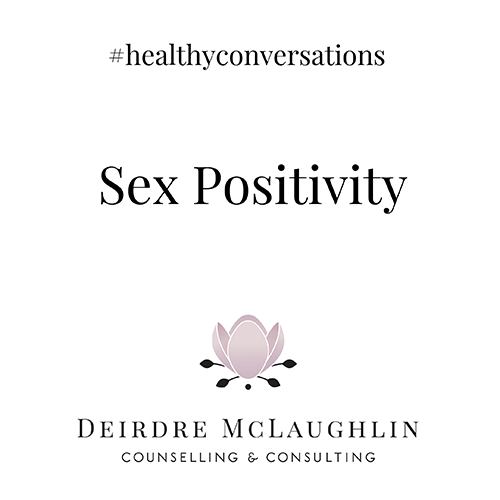in my work as a sexual health educator, i teach audiences ranging from elementary school children to college students, parents, and community groups. the approach is somatic, sex-positive, gender-affirming, and kink aware. My wish is for every person to build, grow, and enhance their sexual self-esteem. delivered at developmentally appropriate levels, Educational topics include, but are not limited to: gender & sexuality; relationships & decision making; anatomy & physiology; contraception; pregnancy; sexually transmitted infections (STIs) & safer sex practices; puberty; and body science.
Within the therapeutic counselling space, my sexual health training allows me to assist clients as they work through issues related to their sexuality – be it shame, confusion, or simply a lack of information. It’s amazing how much uncertainty can be cleared with a little fact-based knowledge. Sometimes knowing the science behind the reproductive system, contraception, or STIs – to name a few – can free people from fears and superstitions about sexual health. On the attitudinal level, sexual health education opens the space for a more joyful approach to sexual expression. Once fears and superstitions are addressed and resolved, individuals have greater freedom to determine how they wish to inhabit their sexuality.
If you’re curious to know more, please get in touch to discuss working together.
Whether pansexual, asexual, or anything in-between or beyond, our sexual expression is a part of who we are. As a counsellor i often have the privilege of attending to otherwise unspoken conversations, which helped me to perceive how important it is to talk about sex. Though it often features in what brings clients into counselling, people sometimes fear to bring it up. Sexuality is central to most people’s lives, yet can be rife with mythology, superstition, and ignorance. I wanted to create an atmosphere that felt safe for clients to talk about and explore this beautiful part of themselves.
The World Health Organization considers age-appropriate, scientifically-accurate sexual health education to be a human right.

This includes the right of all persons, free of coercion, discrimination and violence, to: access sexual and reproductive health care services; seek, receive and impart information related to sexuality; sexuality education; respect for bodily integrity; choose their partner; decide to be sexually active or not; consensual sexual relations; consensual marriage; decide whether or not, and when, to have children; and pursue a satisfying, safe and pleasurable sexual life (Source: “World Health Organization: Sexual Health Working Definitions).
The Canadian Guidelines for Sexual Health Education (2003) published by the Public Health Agency of Canada uphold the principles outlined by the World Health Organization. Specifically, they aim to ensure that “health promotion programs focusing on enhancing positive sexual health outcomes and reducing negative sexual health outcomes are available to all Canadians regardless of their age, race, ethnicity, gender identity, sexual orientation, socioeconomic background, physical/cognitive abilities, religious background or other such characteristics” (p. 2). Within British Columbia, the Ministry of Education outlines sexual health learning standards for every age from kindergarten through to grade ten. The right to comprehensive sexual health education is encoded in Canadian law.
Just because we have a right to this knowledge, however, doesn’t mean that everyone receives it. Sexual health education in the schools can be spotty, sometimes nonexistent, and often tasked to teachers who have neither the background nor desire to deliver this education. As a graduate of the Sexual Health Educator Certificate (SHEC) – which is a competency, knowledge, and performance-based training offered through Options for Sexual Health – i am well-equipped to provide this education in a variety of settings.
Why is comprehensive sexual health education so important? The outcomes are clear: in countries like Sweden and Holland, where it’s been a mandatory part of the curriculum for many generations, there are lower rates of sexual abuse, sexual exploitation, abortion, suicide, teenage pregnancy, and STIs. Closer to home we have the BC Adolescent Health Survey (2019), which is the most reliable, comprehensive survey of youth aged 12–19 in British Columbia. First conducted in 1992, it has been completed every five years since. In 2018, over 38,000 young people aged 12–19 in 58 of BC’s 60 school districts completed the survey.
The results reflect what European countries have known for decades. As youth in British Columbia gain access to better sexual health education, the average age of first intercourse has risen; the percentage of youth using condoms at the time of last intercourse has grown; the use of hormonal birth control has increased; and adolescent pregnancy rates have decreased. One of the superstitions about sexuality is that the more we talk about it with kids, the more they will do it. The opposite is true: the more kids know, the more they put off having sex until they feel ready. And when they do engage, they tend to do so more safely, and with greater sexual self-esteem.
Becoming a sexual health educator provided me with more than I dreamed it would. Growing up, my own sexual health education was nil. Like many others, i learned cultural messages about sexual purity and shame. I intuitively knew that such superstitions only inhibited people from the joy of sexual self-determination; nevertheless, i remained ignorant to alternatives. Having the knowledge of fact-based sexual health education allows me not only to guide others in group settings, but to be a safe and sex-positive counsellor for individuals who seek one-to-one therapy.
I invite you to check out my social media if you want to learn more about issues pertaining to sexual and mental health (links at the bottom of this page). Every few days i publish original content on issues that i’m either exploring professionally, or that i hear coming up in counselling sessions.
